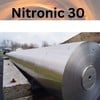Zinc and Zinc Alloys
(120 companies)
Zinc and zinc alloys are non-ferrous alloys that are used widely in the production of die cast components.
Light Alloys and Metals
(331 companies)
Light alloys and light metals have low density and high strength-to-weight ratios. Light weight metals include aluminum, magnesium, titanium, and beryllium alloys.
Specialty Nonferrous Metals and Alloys
(190 companies)
Specialty nonferrous metals and alloys include metals such as hafnium, zirconium, beryllium, tantalum or osmium with unique properties for specific applications.
Tungsten and Tungsten Alloys
(121 companies)
Tungsten and tungsten alloys are refractory metals or alloys with a very high melting point and high density.
Carbon Steels and Alloy Steels
(982 companies)
Carbon steels are steels in which the main alloying additive is carbon. Alloy steels are steels alloyed with other metals or materials in addition to carbon to improve properties.
Cobalt and Cobalt Alloys
(123 companies)
Cobalt and cobalt alloys are non-ferrous metals with high strength and toughness, excellent high temperature strength and resistance, and good corrosion resistance.
Molybdenum and Molybdenum Alloys
(80 companies)
Molybdenum and molybdenum alloys are refractory metal and alloys with a very high melting point (non-alloy 2623 C) and a low thermal expansion coefficient. They are used to fabricate evaporation crucibles, electrodes, rocket technology, furnace components, glass and zinc processing tools, and electrical contacts.
Nickel and Nickel Alloys
(441 companies)
Nickel and nickel alloys are non-ferrous metals with high strength and toughness, excellent corrosion resistance, and superior elevated temperature properties.
Ferrous Metals and Iron Alloys
(1,551 companies)
Ferrous metals and alloys are iron-based materials that are used in a wide variety of industrial applications.
Precious Metals and Alloys
(151 companies)
Precious metals and precious alloys are rare metallic elements and alloys such as silver, gold, platinum, palladium, iridium, osmium, rhodium, and ruthenium. They posses unique characteristics that set them apart from other metals.
Titanium and Titanium Alloys
(322 companies)
Titanium and titanium alloys are non-ferrous metals with excellent corrosion resistance, fatigue properties, and a high strength-to-weight ratios.
Magnesium and Magnesium Alloys
(88 companies)
Magnesium and magnesium alloys are nonferrous metals with low density, good ductility, moderate strength, and good corrosion resistance.
Aluminum and Aluminum Alloys
(745 companies)
Aluminum and aluminum alloys are lightweight, non-ferrous metals with good corrosion resistance, ductility, and strength.
Copper, Brass, and Bronze Alloys
(598 companies)
Copper, brass, and bronze alloys are non-ferrous metals with excellent electrical and thermal conductivity as well as good corrosion resistance, ductility and strength.
Filler Alloys and Consumables
(656 companies)
Filler metal alloys and consumables used in welding, brazing or soldering include items in rod sheet, wire spool, coated stick, weld stud, powder, preform or paste forms.

